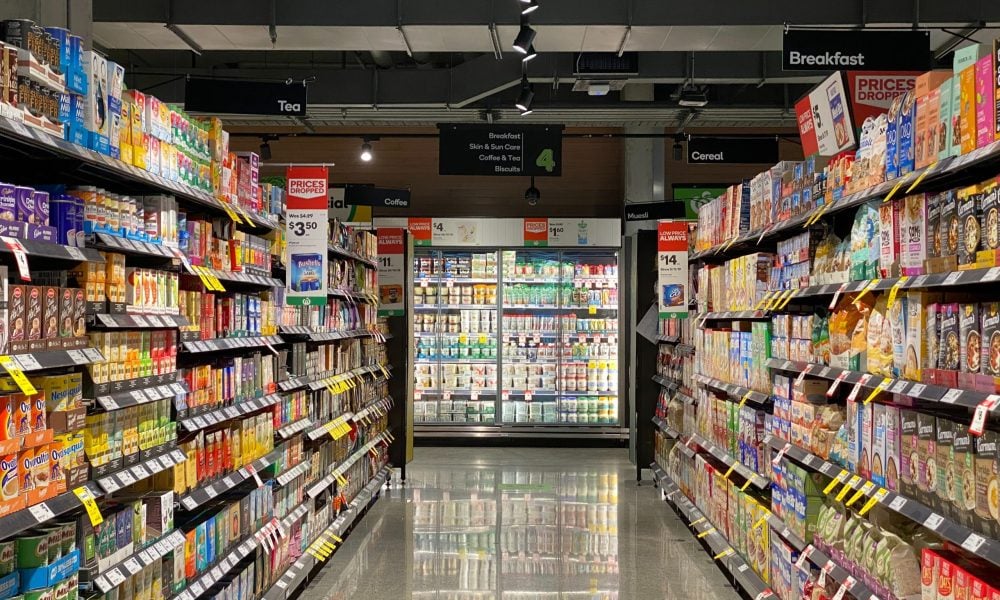What is Natasha’s Law?
Natasha’s Law was passed in October 2021, intended to help those with food allergies or intolerances to make safe choices when purchasing pre-packaged food. All pre-packed for direct sale (PPDS) foods must have a complete ingredient list with clear allergen labelling, according to Natasha’s law.
This new labelling legislation came into action after the tragic death of Natasha Ednan-Laperouse. 15-year-old Natasha, passed away due to eating a sandwich on a flight unaware that the sandwich contained sesame seeds. According to Sky News, Her parents claim that if the allergens were disclosed on the sandwich’s packaging, her death may have been avoided.
Why is Natasha’s Law Important?
According to food.gov over 5% of the UK are living with a food allergy and 9% are living with a food intolerance. Natasha’s law was created to give those people with dietary requirements confidence when buying pre-packaged food and it is set to improve the quality of life for over 2 million people. Most importantly, Natasha’s law will prevent further allergen-induced deaths. At LiberEat, we believe everyone has the right to consume food safely, with this new legislation, people who have food allergies can make safer decisions when purchasing pre-packaged food.
Enforcement and Penalties for Non-Compliance
Non-compliance with Natasha’s Law can result in investigations by local authorities, who may impose fines or other penalties. These authorities are responsible for checking adherence to the law in restaurants, cafes, and supermarkets, especially for PPDS foods.
Who does Natasha’s Law Apply to?
All food establishments that sell food products that are labelled as pre-packaged for direct sale (PPDS) are subject to the legislation. This includes all food operations, care (such as care homes and hospitals), and education such as schools and universities.
PPDS foods are those packaged at the same place they are offered or sold to consumers and are in this packaging before being ordered or selected. This includes items like sandwiches made on-site and packaged before sale, bakery items packaged before being placed on display, and salads prepared and packaged by the business before sale.
To find out if Natasha’s Law applies to your company, you’ll need to determine if any of the food you sell is labelled PPDS. Food categorised as PPDS are as follows:
- any food that is packaged in the same establishment the food is served to customers or
- food that has been placed in packaging before the food is ordered.
- PPDS food may include items such as packaged sandwiches, wrapped bakery products and bottled water
What Should Appear on a Natasha’s Law Compliant Label?
A Natasha’s Law compliant label should include the food’s legal name, customary name or descriptive name, a full ingredients list (including additives and ingredients in compound ingredients) and any major allergens present in the food emphasised every time they appear in the ingredients list. These allergens can be emphasised through the use of bold type, capital letters, underlining or contrasting colours.
The 14 major allergens that need to be emphasised by food law are:
- Celery
- Cereals including gluten
- Crustaceans
- Eggs
- Fish
- Lupin
- Milk
- Molluscs
- Mustard
- Peanuts
- Sesame
- Soy
- Sulphur dioxide and sulphites
- Tree nuts.
More information about creating a Natasha’s Law compliant label, an example of a Natasha’s Law compliant label and a Natasha’s Law Checklist can be found on the food.gov website.
Precautionary Allergen Labelling (PAL)
While PAL (Precautionary Allergen Labelling) is not mandatory, it’s recommended when cross-contamination risk exists despite all precautions. While Natasha’s Law governs PPDS labelling, food businesses may also use PAL (‘may contain’ statements) to indicate potential cross-contact risks.
LiberEat’s Allergen Detection Technology
LiberEat’s technology scans ingredients and other data to detect potential allergen mislabelling, helping businesses ensure accurate allergen information in compliance with Natasha’s Law.
This proactive approach reduces the risk of errors reaching consumers.
LiberEat’s Allergen Detection Technology provides an allergen safety blanket for food businesses. LiberEat offers a second line of defence in the food industry to detect allergens and other harmful ingredients. This technology can be applied directly by companies to identify errors in allergen communications (such as labels), which can prevent the risk of injury to their customers. Get in touch with us today to find out more about our Allergen Detection Technology.
Sources : Food.gov, Sky News , NHS, Natasha Allergy Research Foundation, gov.uk

